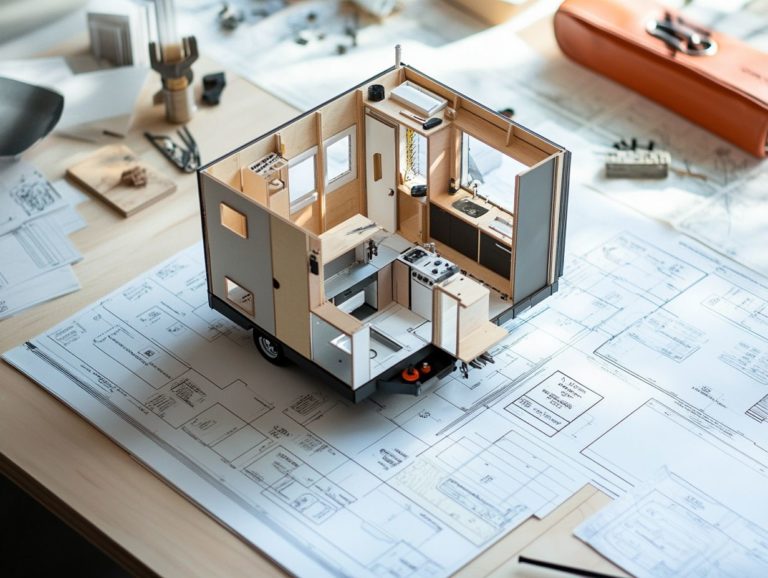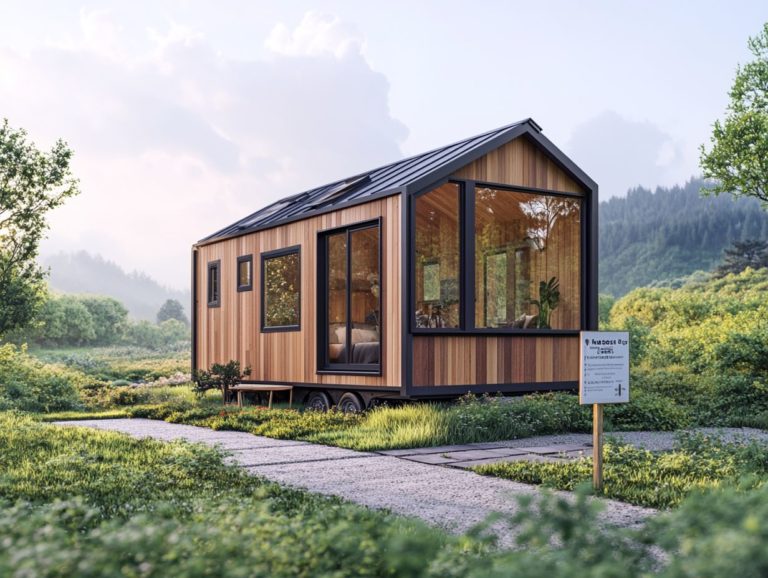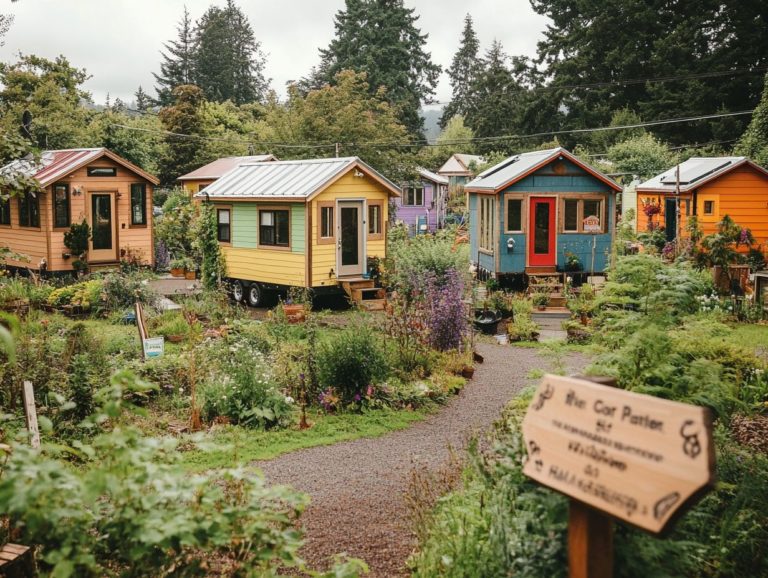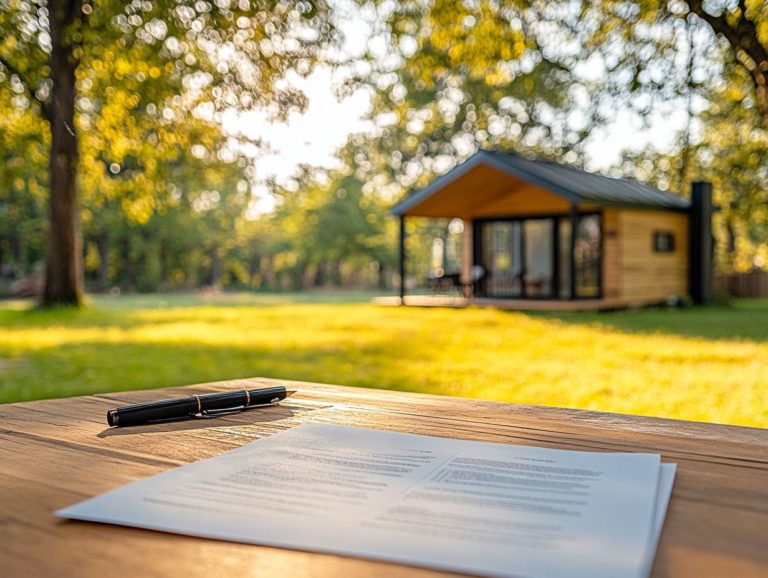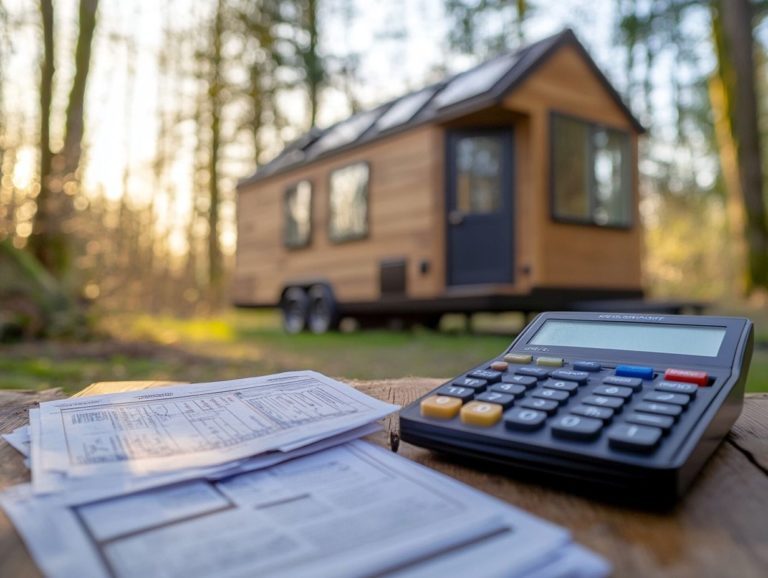Tiny House Laws: Protecting Your Investment
As the tiny house movement continues to gain traction, it’s essential for you to grasp the laws surrounding these compact living spaces if you’re considering this lifestyle.
From zoning regulations to building codes, navigating the legal landscape can be complex. It s crucial for safeguarding your investment.
This article delves into what tiny houses are, why understanding tiny house laws is important, and the specific challenges that owners encounter. It also covers alternative living options that may better suit your needs, ensuring you are thoroughly prepared for your tiny house journey.
Contents [hide]
- Key Takeaways:
- Understanding Tiny House Laws
- Zoning and Building Codes
- Navigating Legal Challenges
- Alternative Living Options
- Frequently Asked Questions
- What are tiny house laws and why do they matter?
- Do I need a building permit for my tiny house?
- Can I legally live in a tiny house on my own property?
- Are there any specific safety regulations for tiny houses?
- Can I park my tiny house on someone else’s property?
- What are some tips for protecting my investment in a tiny house?
Key Takeaways:
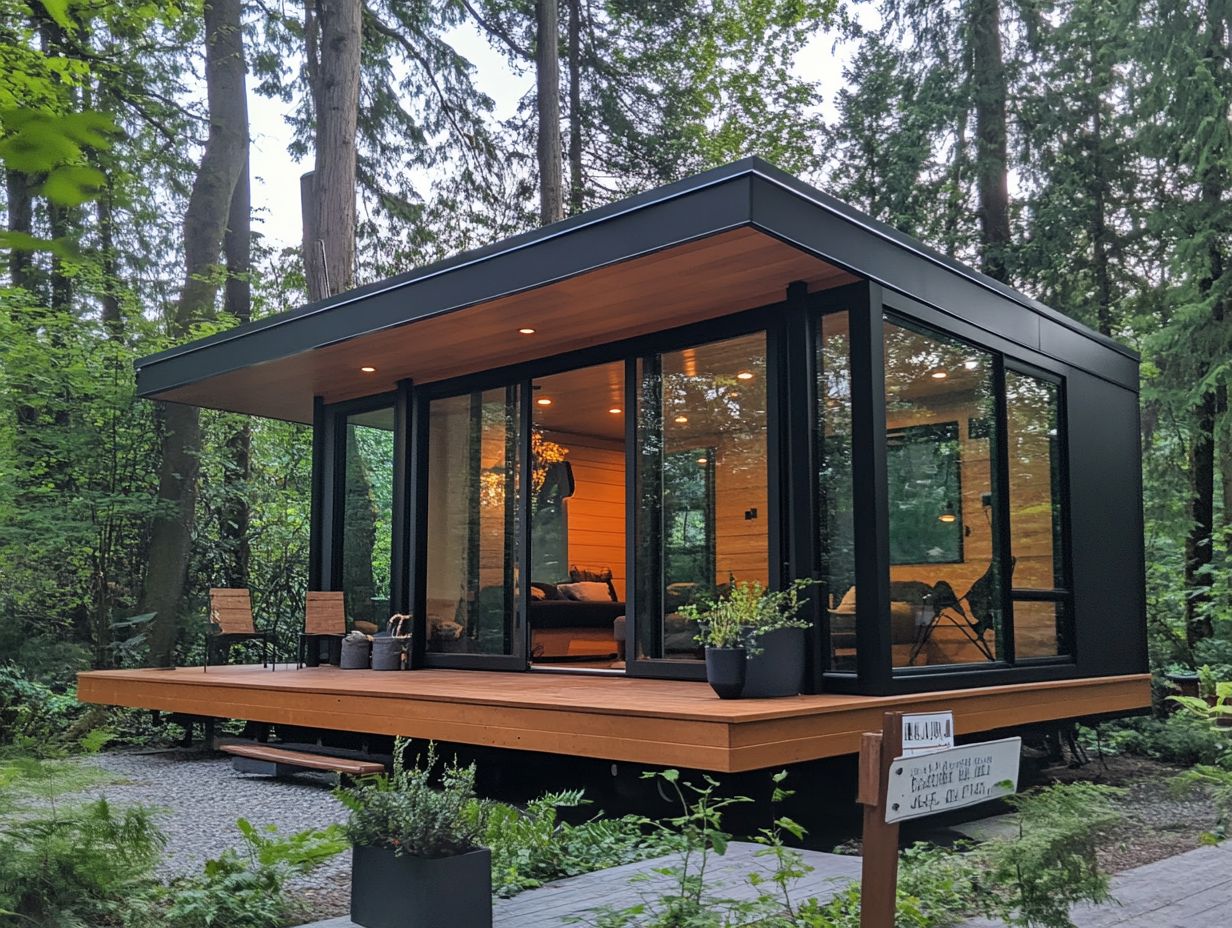
- Stay informed: Understanding tiny house laws and regulations is crucial to protecting your investment.
- Know your rights: Zoning and building codes can greatly impact your ability to own a tiny house. Research and comply with local laws.
- Be prepared: Legal challenges may arise for tiny house owners. Proactive steps can help protect your investment and ensure a successful living experience.
Understanding Tiny House Laws
Understanding tiny house laws is key to unlocking your tiny living adventure, especially as the Tiny House Movement continues to gain traction across the United States.
These laws encompass zoning regulations, building codes, and diverse state regulations that determine where and how tiny houses can be placed. They ensure compliance and promote safety.
By familiarizing yourself with these legal aspects, you can embrace the benefits of this affordable housing trend. This knowledge helps you sidestep potential legal hurdles that may arise during the construction or occupancy of your tiny home.
What are Tiny Houses?
Tiny houses, often called tiny homes, are compact living spaces typically ranging from 100 to 400 square feet. They re designed to promote a simpler lifestyle and offer affordable housing options for individuals and families.
These unique dwellings feature innovative design aspects like multi-functional furniture and sustainable building materials that prioritize eco-friendliness. Unlike traditional homes, tiny houses encourage minimalism and often require much less upkeep.
They differ from mobile homes in terms of structure and permanence. Many tiny houses are built to be placed on fixed foundations. With the rise of DIY builds, personalizing your space becomes enjoyable, making tiny living a prominent choice in the broader affordable housing movement.
Why do Tiny House Laws Matter?
Tiny house laws shape the legal framework for your tiny living experience. They influence everything from zoning and building regulations to insurance requirements, essential for protecting your investment.
For prospective tiny homeowners, grasping these laws is vital. They dictate where you can place your tiny home and the types of insurance policies available. Understanding tiny house living and zoning is essential as proper insurance coverage is critical for safeguarding against unexpected property damages.
With regulations varying across locations, navigating this complex terrain is key to making informed financial decisions. Doing so helps you sidestep costly pitfalls, ensuring your unique housing investment remains both legally compliant and financially secure.
Zoning and Building Codes
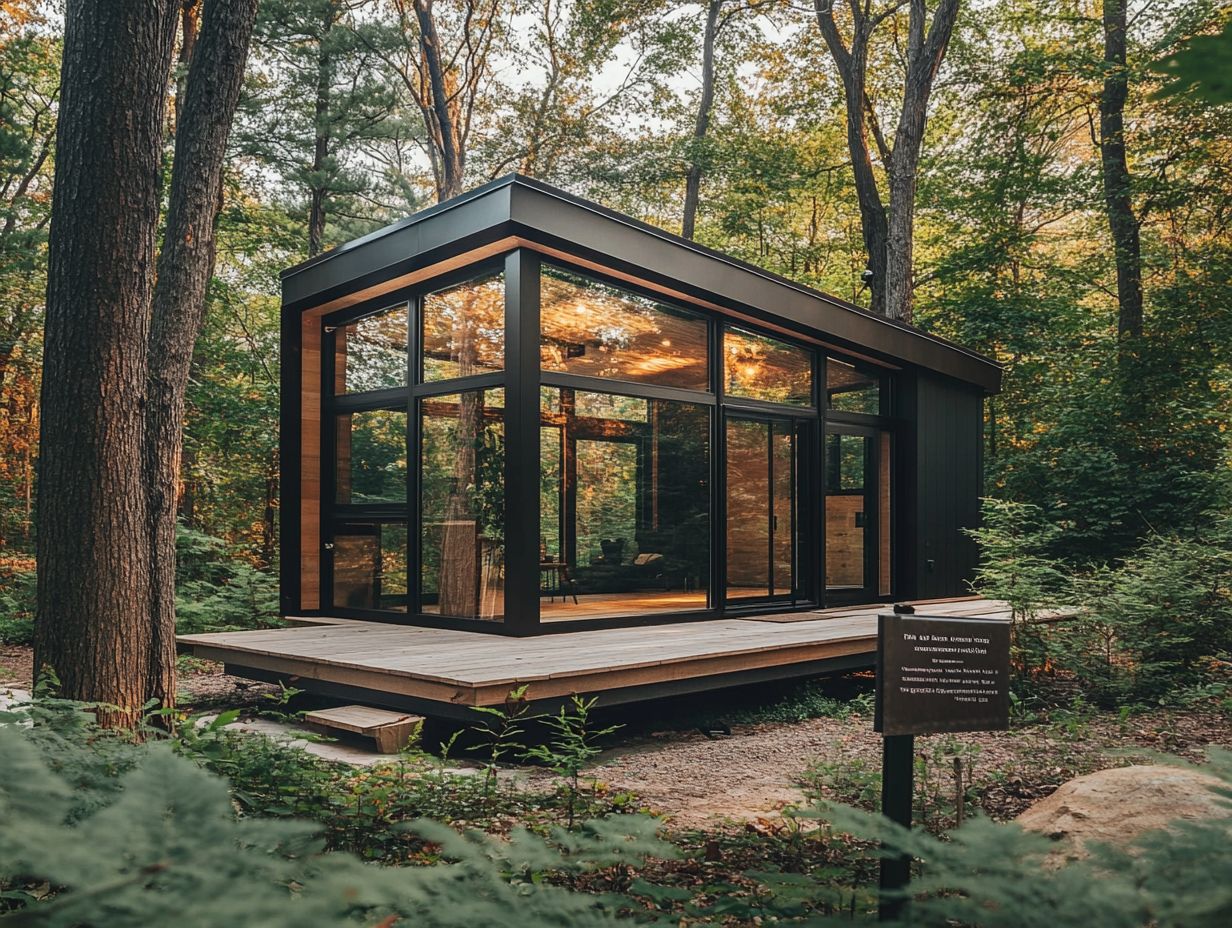
Zoning and building codes are critical elements of tiny house laws. They profoundly influence the location and construction methods of these dwellings. Their variations across states can impact property value and compliance challenges for tiny house owners.
It is essential for you to navigate these regulations carefully to protect your investment.
Ready to take the leap into tiny living? Start by researching tiny house laws in your area and exploring options that fit your lifestyle!
How Zoning Regulations Affect Tiny Houses
Zoning regulations are crucial for tiny houses. They decide if these homes can stand alone, serve as accessory dwelling units, or be part of tiny house communities in the U.S.
These regulations often come with stringent limits on minimum lot sizes, building heights, and overall density. Such restrictions can significantly impact how tiny houses fit into established neighborhoods. For instance, in some areas, tiny homes may be permitted as secondary dwellings on larger properties. To navigate these complexities, it’s important to consult resources like tiny house regulations: a state-by-state guide, which can help homeowners optimize their land while providing affordable housing options.
Certain municipalities may enforce restrictive ordinances that hinder the development of tiny house communities. This creates challenges for those hoping to embrace innovative living arrangements. For valuable information, check out tiny house legal resources you should know. Cities like Portland, Oregon, have successfully amended their zoning laws to allow tiny house villages to flourish. This illustrates that adaptable zoning can enhance affordable housing options while maintaining community integrity.
Building Codes for Tiny Houses
Building codes for tiny houses are crucial regulations that safeguard the safety, durability, and livability of these compact homes. They often require safety inspections and compliance with specific construction standards to protect against weather-related incidents.
These codes cover important aspects such as:
- Insulation requirements that enhance energy efficiency
- Plumbing standards to ensure safe water usage
- Structural integrity to withstand environmental forces
You ll also need to navigate local zoning laws and requirements that dictate where these tiny homes can be placed, adding complexity to the building process.
Don’t overlook the importance of construction insurance; it provides essential financial protection against potential damages, accidents, or liabilities during and after construction. This insurance not only protects your investment but also grants you peace of mind as you embark on your journey into the tiny living movement. For legal support, consider exploring tiny house legal assistance options available to you.
Navigating Legal Challenges
Navigating legal challenges can be a significant concern for tiny house owners. You often encounter hurdles related to zoning regulations, building codes, and insurance coverage issues that can jeopardize your investment and complicate your journey to embracing the tiny living lifestyle.
Common Legal Obstacles for Tiny House Owners
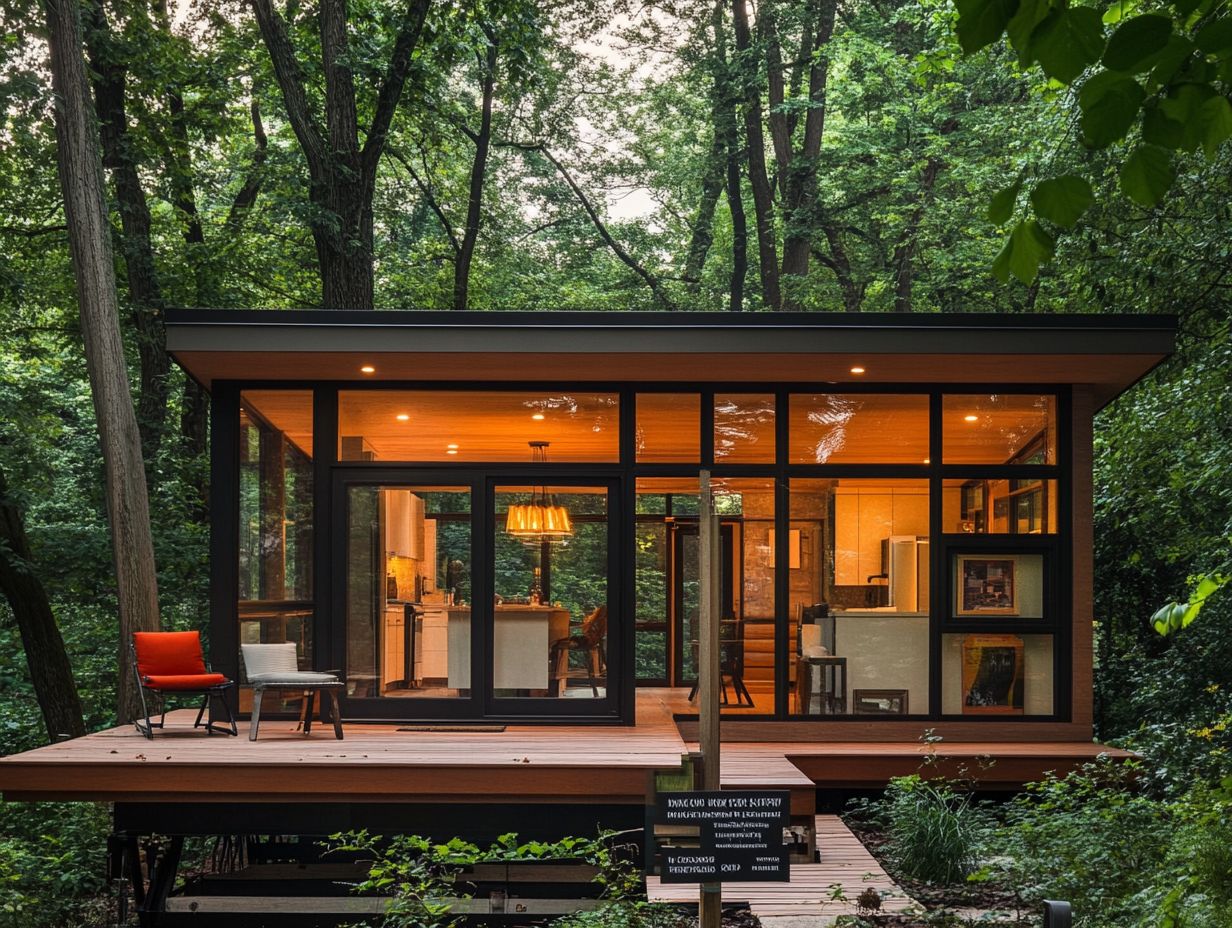
Common legal obstacles for tiny house owners include:
- Restrictive zoning laws
- Insufficient permits
- Misunderstandings concerning building codes
These challenges can make downsizing harder. Embracing a minimalist lifestyle is an exciting journey, but be ready for obstacles!
Some municipalities might allow residences only on lots that exceed specific square footage, sidelining tiny houses from being legally situated within city limits. Be prepared for challenges in obtaining the necessary permits due to misconceptions about whether your home is classified as a recreational vehicle or a permanent dwelling, so it’s important to understand tiny house zoning laws.
Navigating these state regulations requires diligent research and often involves engaging with local officials to clarify requirements and secure the right documentation. This ultimately leads to a smoother living experience.
Steps to Take to Protect Your Investment
Act now to safeguard your home! To protect your investment in a tiny house, it s vital to grasp your insurance options and take proactive steps to ensure your tiny home meets local regulations while being adequately protected against potential damages.
This means diving into various types of policies to find the right tiny house insurance tailored to your specific needs, whether you’re living in it full-time or using it for recreation. It’s also crucial to understand tiny house laws in your area, as these can greatly influence your coverage.
Keep meticulous records of your home’s value, the land it occupies, and any upgrades you ve made. This information aids in securing better insurance rates and offers you peace of mind. By making informed financial choices regarding improvements or modifications, you can further protect your investment and ensure long-term satisfaction.
Alternative Living Options
Alternative living options are gaining popularity within the tiny house movement. These solutions offer affordable housing choices, from tiny houses to mobile homes, all designed to promote a simpler lifestyle.
Other Housing Solutions to Consider
Besides tiny homes, you can explore mobile homes and innovative DIY builds. Each option provides unique alternatives for affordable housing.
These choices come with their own advantages and challenges. For instance, mobile homes offer flexibility and lower costs compared to traditional housing, though you might face issues like depreciation and land ownership.
DIY builds attract those who enjoy hands-on projects and want to save money. However, they require time, effort, and a certain level of skill.
By looking into these alternatives alongside tiny homes, you can find a housing solution that fits your budget and personal values.
Frequently Asked Questions
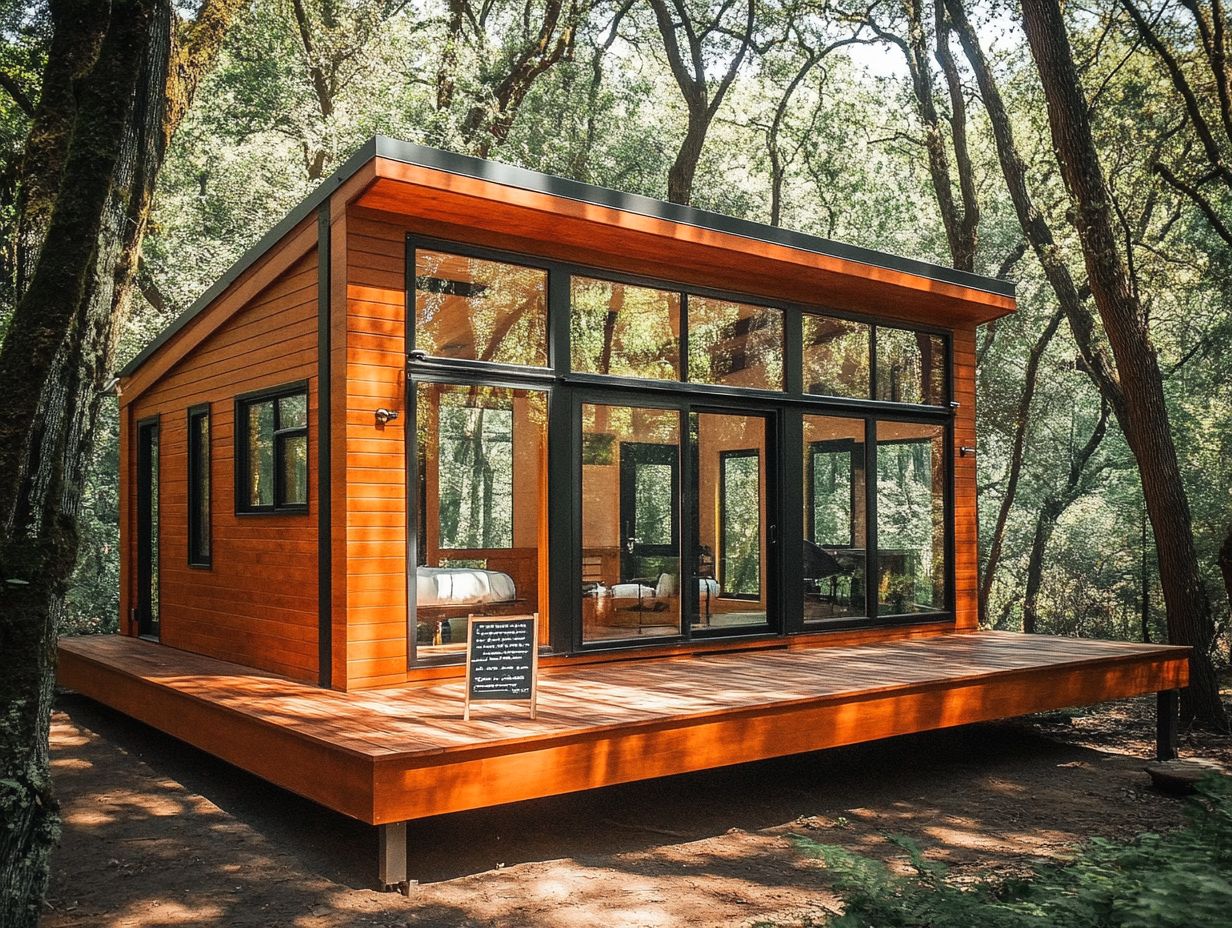
What are tiny house laws and why do they matter?
Tiny house laws are regulations from local and state governments about building and living in tiny houses. These laws protect your investment by ensuring you follow necessary safety codes and zoning rules.
Do I need a building permit for my tiny house?
Yes, you typically need a building permit for your tiny house. The requirements vary by location, so research your local regulations carefully.
Understanding your insurance options can also help during this process.
Can I legally live in a tiny house on my own property?
It depends on local zoning laws. Some areas allow tiny houses as permanent homes, while others treat them as temporary dwellings.
Check with your local government to ensure compliance. It’s also a good idea to consult an insurance agent for liability coverage advice.
Are there any specific safety regulations for tiny houses?
Yes, tiny houses must follow safety regulations. This includes rules for electrical, plumbing, fire safety, and overall structural integrity.
Consult a professional or research local regulations to ensure you meet all safety requirements.
Can I park my tiny house on someone else’s property?
You need to consider local regulations and get permission from the property owner. In some cases, you can park your tiny house on their land if you meet zoning and building codes.
Always obtain written permission from the owner and review any necessary insurance policies beforehand.
What are some tips for protecting my investment in a tiny house?
To protect your investment in a tiny house, start by getting homeowners insurance. This helps cover unexpected damages.
Keep all your important documents organized. Regularly check your tiny house’s structure and safety features to ensure everything is in good condition.
Stay informed about changes in local laws that could impact your tiny house. Consulting with insurance providers can help you find the best coverage options tailored for your needs.

